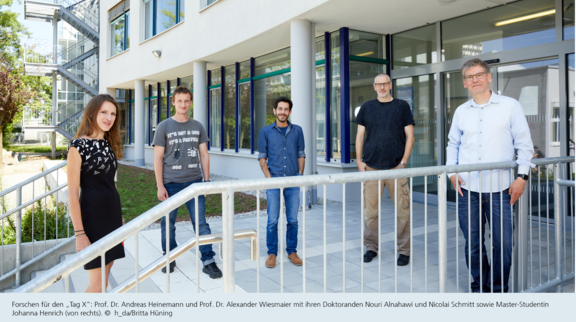News

Optimizing cybersecurity through visual analytics
Six hours without Facebook, Instagram and Co.: For the US-based Meta Inc. this meant losses in the billions. But how do such problems occur and how can they be identified as quickly as possible? ATHENE researchers at Fraunofer IGD have been working on this complex of issues for several years with the goal of making network data more understandable. This will enable more people to assess what is happening in their own network. Current and future possibilities for visual analysis should simplify the work of security experts.
read more
Post by ATHENE researchers on the APNIC blog: DNS-over-TCP is considered vulnerable
In their latest post on the APNIC blog, ATHENE-researchers discuss recent recommendations to use TCP instead of UDP for sending DNS packets. In order to be able to traverse a network more easily, large packets are often divided into smaller packets by means of so-called IP fragmentation. TCP with Path MTU Discovery (PMTUD) was recently proposed as an alternative to this IP fragmentation. In this context, the recommendation was made to use TCP instead of UDP for sending DNS packets. This is based on the assumption that TCP is resistant to IP fragmentation attacks.
read more
KIKu project launched - ATHENE researchers develop app to support cultural and investigative authorities
A central challenge in combating the illegal trade in stolen cultural property is that illegally traded objects are difficult to identify. The KIKu project - AI for the Protection of Cultural Property - funded by the Federal Government Commissioner for Culture and the Media, aims to facilitate the work of the responsible actors, especially customs and police: To this end, researchers at Fraunhofer SIT are working with cosee GmbH to develop an app that uses artificial intelligence to provide automated information on whether, for example, an antique vase or statue could come from a looted dig or was illegally acquired in some other way.
read more
ATHENE researchers facilitate exchange on migration and agility of PQC procedures
Prof. Andreas Heinemann and Prof. Alexander Wiesmaier from Darmstadt University of Applied Sciences (h_da) are working on post-quantum cryptography in the ATHENE project "Agile and Easy-to-Use Integration of PQC Schemes" and on how existing IT architectures can be converted to quantum computer-resistant encryption methods. Because when the powerful quantum computer arrives, the internet as we know it today would no longer be secure. Currently used, so-called public-key encryption methods would then no longer be valid. The two h_da professors are working with their teams to be prepared for this time. In order to be able to use the knowledge of as many scientists as possible for their research, they have set up the freely accessible community website https://fbi.h-da.de/cma.
read more
Effective security notifications for website operators
An interdisciplinary study by researchers from TU Darmstadt, Otto Friedrich University Bamberg and Goethe University Frankfurt shows how website operators can be most effectively informed about inadequate data protection configurations. In this way, authorities and security researchers will be able to persuade website providers to recognise and correct deficiencies as effectively as possible in the future. The research team also provides the tool "Check Google Analytics", which can be used to check the correct activation of IP anonymisation when integrating Google Analytics.
The study was supported by the German Research Foundation (DFG) as part of the Research Training Group 2050 "Privacy and Trust for Mobile Users" and by the Federal Ministry of Education and Research (BMBF) and the Hessian Ministry of Science and the Arts (HMWK) as part of the ATHENE funding.
read more

